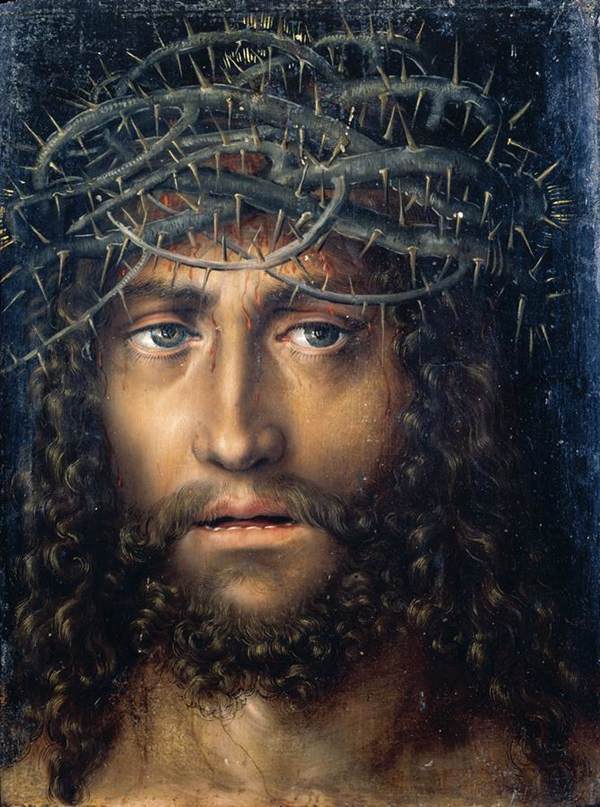Description
The painting Christ's Head with Crown of Thorns by Lucas Cranach the Elder is a masterpiece of Renaissance art that has captivated art lovers for centuries. The work is an impressive representation of the head of Christ crowned with thorns, which has become one of the most iconic symbols of the crucifixion.
Cranach's artistic style is characterized by his ability to create a balanced and harmonious composition, which can be appreciated in this work. The head of Christ is in the center of the painting, surrounded by a dark background that highlights his face and his crown of thorns. The figure of Christ is slightly tilted to the left, giving it an appearance of suffering and pain.
The use of color is also impressive in this work. The crown of thorns is rendered in shades of brown and yellow, creating a realistic texture that contrasts against the dark background. The face of Christ is painted in soft shades of brown and beige, giving it a serene and peaceful look.
The history of the painting is also fascinating. It is believed to have been painted in the 16th century, during the German Renaissance, and is known to have belonged to the art collection of King Charles I of England. The work has survived through the centuries and has been the subject of numerous exhibitions and studies.
Despite its fame, there are little-known aspects of the painting. For example, Cranach is known to have painted several versions of this work, each with slight variations in composition and color. Furthermore, the original painting is believed to have been much larger than the version currently on display, suggesting that it was cut down at some point in its history.
In conclusion, the painting Christ's Head with Crown of Thorns by Lucas Cranach the Elder is a masterpiece of Renaissance art that combines technical skill, balanced composition, and impressive use of color. Its history and little-known aspects make it even more fascinating for art lovers and history scholars.

